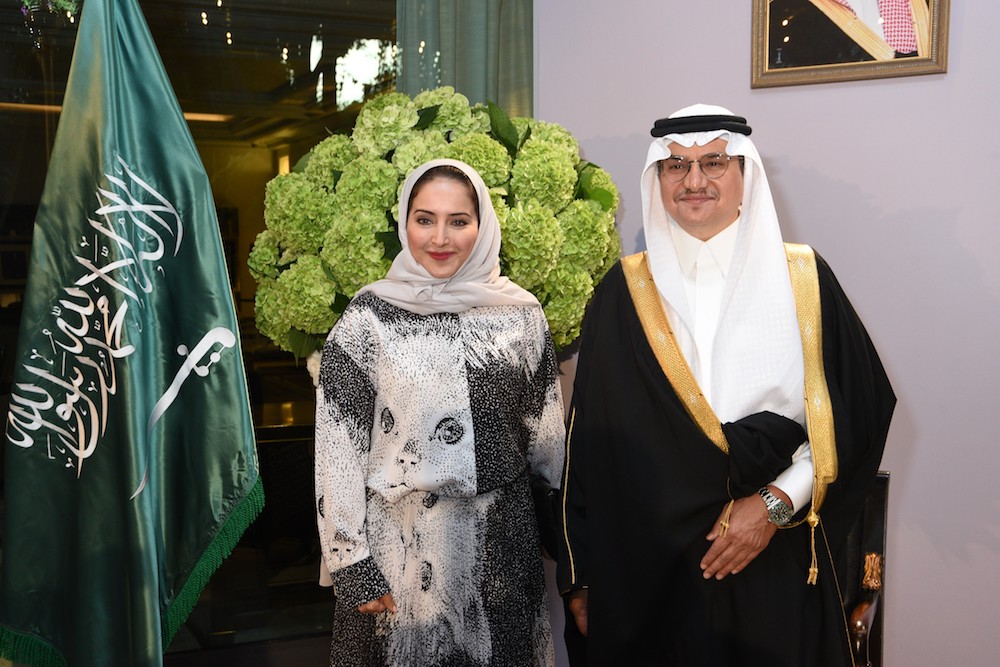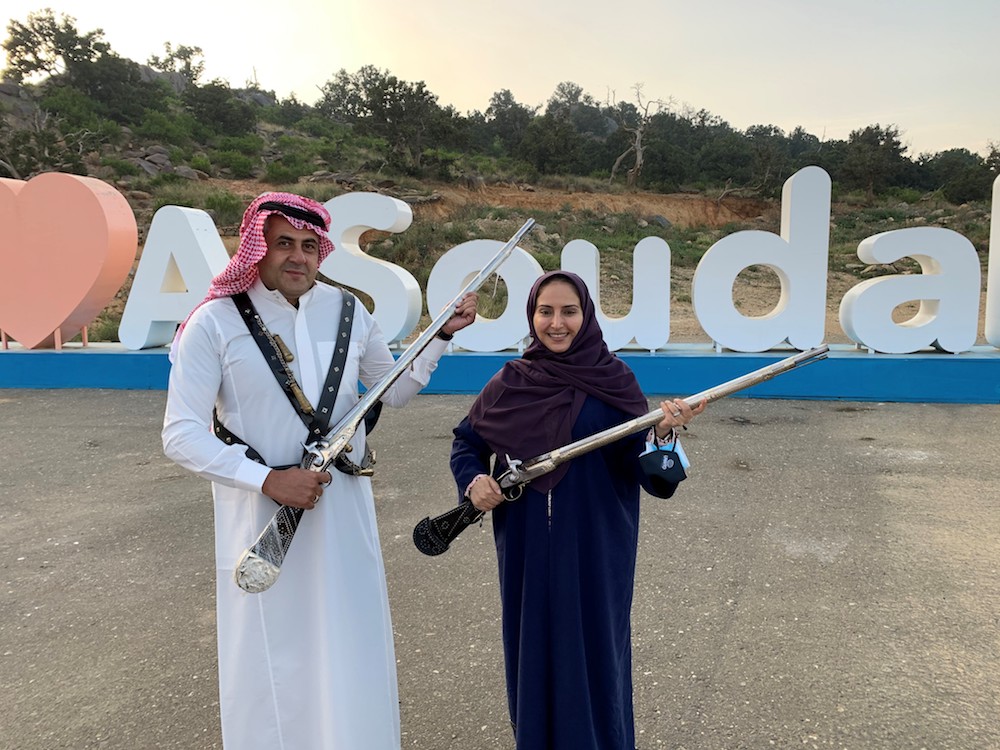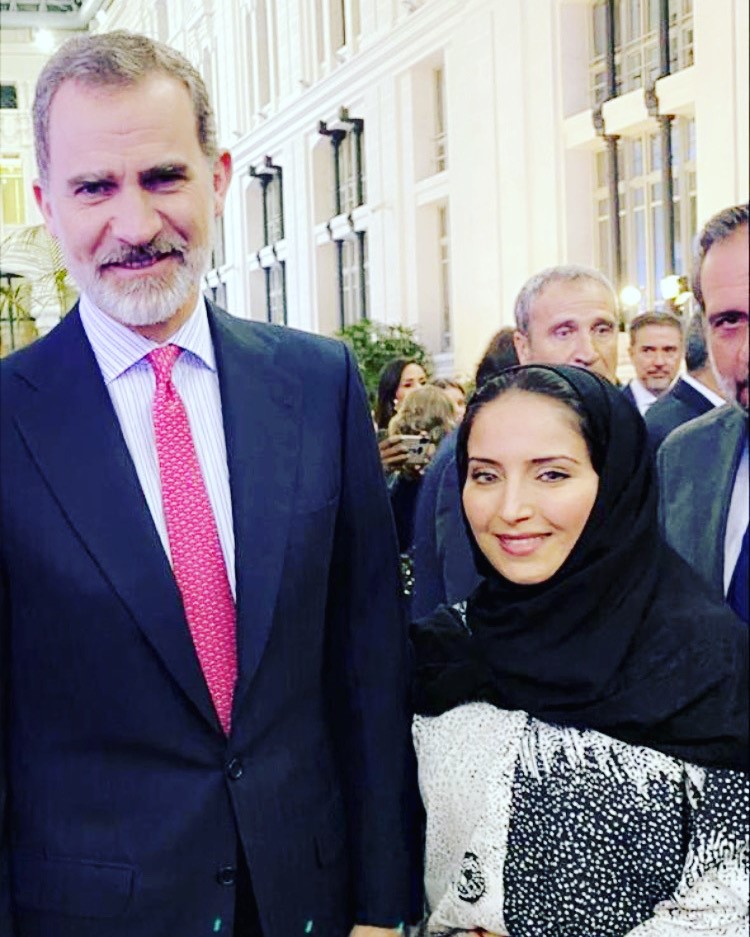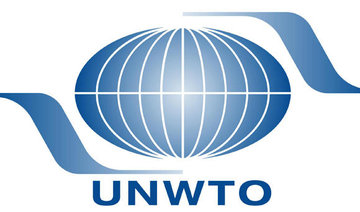RIYADH: With almost 19 years’ experience in the tourism industry, Basmah Al-Mayman is a pioneer in her field. The first Gulf Arab national to represent the UN World Tourism Organization (UNWTO) at a regional level looks to the sector’s future in the Middle East with optimism.
The UNWTO’s plan to open a regional office in Riyadh — the first outside its global headquarters in Spain — shows there is growing recognition of the MENA region’s potential in this lucrative sector, Al-Mayman told Arab News in an exclusive interview.
“Choosing Saudi Arabia for the regional office was a good decision — right beside the largest tourism projects in the world, which are coming up in Saudi Arabia,” she said, referring no doubt to AlUla, Diriyah, Qiddiya, Amaala, the Red Sea Project and NEOM smart city among other developments.
“This is definitely an indicator of how high Saudi Arabia’s profile has risen in the UNWTO, besides reflecting the development of tourism as part of the Kingdom’s economic diversification plan.
“Tourism’s presence in the Vision 2030 agenda and the economic transformation plans reflects the Kingdom’s growing presence in world tourism.”
Investments worth $810 billion are expected to transform Saudi Arabia over the next decade into one of the biggest leisure tourism markets in the world, with the Kingdom’s Public Investment Fund and Saudi Tourism Authority (STA) leading the charge.

Basmah Al-Mayman with the Saudi ambassador to Spain in Madrid on Saudi National Day in 2019. (Supplied)
Religious visitation will also continue to attract millions of pilgrims to Saudi Arabia each year for the Hajj and Umrah — which together add an estimated $12 billion to the Kingdom’s GDP per year.
The sector’s potential was aptly demonstrated by a surge in domestic tourism during the summer months of 2020, when coronavirus measures caused a steep decline in foreign travel. Domestic travel increased 31 percent this year compared with the previous 12 months, and local flights had to be augmented to cope with the demand.
As a result, the Kingdom’s hidden gems, like the island-dotted Umluj coast, the southern mountains of Abha and the scenic province of Asir, known for its breathtaking scenery and its year-round cool climate, are now squarely back on the tourist map.

Basmah Al-Mayman with the UNWTO Secretary General during his last visit to Aseer. (Supplied)
From her base in the Spanish capital Madrid, where she has served as Middle East regional director since 2018, Al-Mayman has devoted her entire career to developing the tourism industry — long before Saudi Arabia began opening up to the world.
“Saudi tourism and I both started out together,” she said. “I was very young when I joined the Saudi Commission for Tourism (SCTH) when it first started. There wasn’t an official structure for the organization nor was there an industry.” Given that there were very few women in the Saudi tourism industry back then (“actually less than five”), Al-Mayman says she is pleased with the turn it has since taken.
During her time at the SCTH, where she served on the board of directors, Al-Mayman fought hard to get Saudi Arabia’s precious historical architecture, including the awe-inspiring ruins of AlUla and Diriyah, registered as UNESCO World Heritage sites. She recalled these early struggles during a recent meeting of the G20 tourism ministers.
“Having these sites on the G20 table, for me personally, made me realize how far we have come and what we have been through in this industry,” she said.
Al-Mayman embodies much of the spirit that is driving the social changes sweeping Saudi society, including the empowerment of women. She is especially grateful to her mother for supporting her education and helping her realize her full potential.
THENUMBER
$12 billion
Religious visitation’s contribution to KSA GDP per year.
“Ever since I was a child my mom encouraged me to read and she was — God bless her soul — a very good reader and she encouraged me to be my best,” she said. “I am the only daughter in the family, but I was not raised as a girl. I was raised the same way my brothers were.”
Alluding to the oft-quoted words of Crown Prince Mohammed bin Salman at the Future Investment Initiative conference in Oct. 2018. — “The Middle East will be the new Europe” — Al-Mayman said: “This is a regional ambition. I am just quoting the leader behind it. It is true. We can see it happening. Even now, during the COVID-19 pandemic, our region is less affected and vulnerable for many reasons.”
Al-Mayman’s success saw her ranked 13th in Forbes Middle East’s 2020 “power list” of 100 businesswomen who are at the top of their game. She was also the only woman included representing tourism in the Arab world. But, as she pointed out, strong women are nothing new in the region.
“If we are speaking of this land, which is today known as Saudi Arabia, in Makkah we have Sayidah Khadijah (the prophet’s wife), who had a major role in her society and local economy in Makkah,” she said.
“If we go to modern history, when the Kingdom started, Princess Nourah bint Abdulrahman, the founder’s sister, played a major role in national relations. She represented the founder in many situations, where she would receive international women’s delegations coming for Hajj or other reasons.
“Also, we have so many great women in the fields of education and medicine. Saudi women never stopped working, never stopped contributing to their society, and never stopped contributing to their economy. I am just wondering why some countries think the role of Saudi women only started now.”

Basmah Al-Mayman with the King of Spain during the last edition of FITUR in Madrid in January 2020. (Supplied)
As for the Middle East’s tourism industry, Al-Mayman is confident even better days lie ahead. “I am very optimistic about the region,” she said. “Many of its countries are moving forward in tourism, moving forward in creating more decent job opportunities for both men and women and for the youth in general.”
Saudi Arabia introduced its new e-visa program in Sept. 2019 to help attract foreign tourists, but was forced to suspend the service with the onset of the pandemic. It will resume issuing tourist visas as early as Jan. 2021, Ahmed Al-Khateeb, the Saudi tourism minister, told Bloomberg last month — maybe even sooner if a vaccine for COVID-19 is found.
Al-Mayman is convinced tourism will bounce back much faster from the blow of coronavirus in the Gulf than in European and other advanced economies. “We are taking this pandemic seriously,” she said. “Therefore, the damage and loss are lower compared to bigger regions because we have much smaller populations and most of the countries in the region also have strong economies.”
Al-Mayman believes it is the responsibility of these wealthier Gulf nations to contribute their skills and knowhow to promote international development. “I am very ambitious and want to see more Arabs and GCC officials have more leading positions within the UN specialized agencies. We are one world, and we serve and help each other,” she said.
“It’s not enough to be a financial contributor. We also have people with talents and good skills who can also help the other regions in this world to make the planet a better place.”
------------------
Twitter: @NoorNugali























